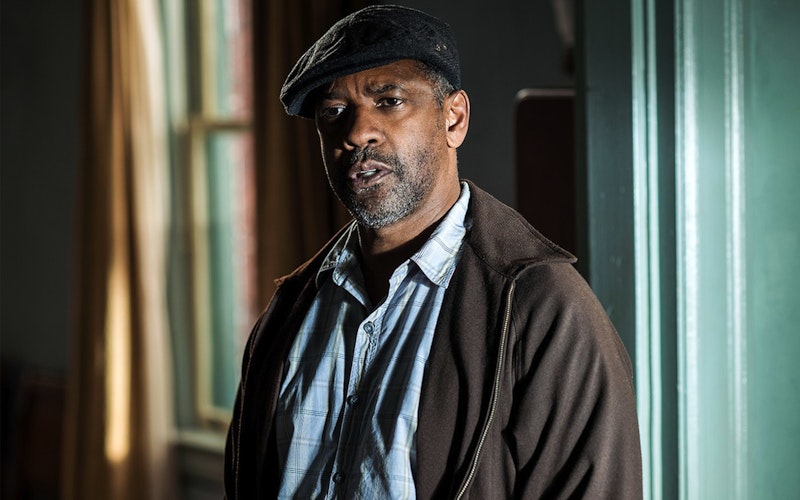
Movies
Fences: Wrestling with God for All the Wrong Reasons
Editor’s note: This is part of a series on the 2017 Best Picture nominees. All of the articles are available as a pdf package here.
Fences, directed by and starring Denzel Washington and adapted from the Pulitzer Prize-winning play by August Wilson, centers on a man in the midst of a wrestling match: with himself, his country, and his God.
Set shortly after the rise of Jackie Robinson in mid-century America, the movie’s main character is Troy, a recently promoted garbage handler who struggles with his treatment by whites and sees his current station in life resulting from their refusal to allow a black man to play baseball, despite his obvious skill. While rarely leaving the backyard of Troy’s Pittsburgh home, Fences focuses on the relationships between a husband and wife (played by Viola Davis), a father and his sons, two brothers, and even a man and his (perhaps imaginary) dog, Blue. Troy and his family feel the impact of life’s losses, be they in terms of his career, as a result of war, or caused by American bigotry and structural racism.
Yet Troy is no saint, as is clear when his close friend Bono (Stephen Henderson) confronts him about his own transgressions. Later, when a defiant Troy taunts death itself (to the crackle of lightning and peals of thunder), he recalls Jacob, who wrestled with God until the morning. Washington gives a powerhouse performance of biblical proportions, as Troy sizes himself up to be great even as he’s reeling from the impact of his sins.
Troy is a Jacob figure who lost his way.
Although Troy does confront God, there are important distinctions between his story and Jacob’s. After fighting God, Jacob asked for and received a blessing. But Fences does not end well for Troy. Maybe this is because Troy fought God for the sport of it, taunting him. The issue of vanity also comes into consideration. Troy used his winding soliloquies and arguments to capture the heart of his wife, the approval of his friends, and the admiration of his children. But he did not consider the importance of actually following the Lord. The fights that we have in the nights to come should be ones of honesty, but also obedience. Troy’s faults were not ones he asked forgiveness for, nor did he offer much consolation to his victims. Instead of mercy, he offered his vanity—powering up over those around him and eventually losing that fight for all to see. Troy is a Jacob figure who lost his way; he fought with a God he did not fully respect or love.
To wrestle with God because we think we are gods is destructive. We must ask whether we are imposing barriers or being imposed by them. As Bono, Troy’s friend, tells him, “Some folks build fences to keep people out. Others build them to keep people in.” One must seek to understand and grow from our wrestling. God can work through anything if we submit ourselves to the power that comes through following him.
Topics: Movies, Culture At Large, Arts & Leisure